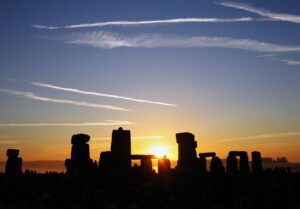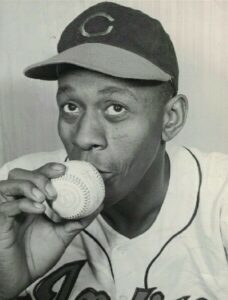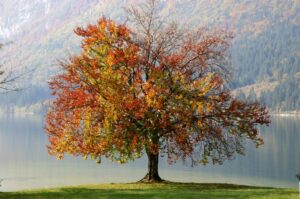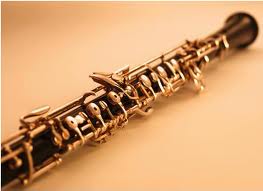-
Lot’s Wife
Shalom,
I wanted to begin my pages today by coloring them with a series of Winter Celebration greetings from as many religious and ethnic groups as possible. An Internet search for what I had expected to be a simple and limited list, turned out to be an awakening of epic proportions, as to how observant the peoples of the world are to the cycles of Nature.
 Despite commercialization of the winter holidays, cultures all over the world have traditions for rituals that momentarily freeze frame the passage of the shortest day and longest night in order to transform the immutable reality that even the darkest march into night is a passing phase, guaranteed to pass, and cycle back towards light.
Despite commercialization of the winter holidays, cultures all over the world have traditions for rituals that momentarily freeze frame the passage of the shortest day and longest night in order to transform the immutable reality that even the darkest march into night is a passing phase, guaranteed to pass, and cycle back towards light.Why is this passage a universal observance? we all recognize the strangeness of seasonality, that is, that every day does not bring the same old, same old with regard to weather and day length. This goes beyond the mere becoming an historical marketing issue, with the production of physical comforts, warm clothes in winter, lighter ones in summer, of gathering in food in its season and living off of it in the inclement ones. What we notice in the unevenness of the seasons, the passage from light to dark to light again teach us something about ourselves, that we, too, have dark times, sink into coldness and dearth of personal provisions. The challenge at those times is to remember what the seasons do.
I am in bed with a chest and sinus cold that will not go away. My usual perky attitude about winning over a cold, intentional attention to self-care, food, rest, engaging with interests, thinking about others, is not working! I am miserable and as a creative person, constructing amazing scenarios about what I could have done to avoid this cold: taken better care of myself, gone more times to the health center, had less work and more fun, maybe I had ‘too much’ fun (some of the scenarios are hopelessly contradictory), what I ate or should have eaten, went out too much, stayed home and isolated myself too much. Is any of this familiar?
As a student Cantor, I have found my cold to be particularly annoying, because my ears are plugged up and I can’t hear well, and I can barely talk without coughing, let alone sing. My scenario creator has capitalized on this, too. “Maybe I’m too old to be doing this. Maybe I’m too old to take on a new career, Maybe I’m too old to learn how to sing, Maybe I’m too old to move to New York
 and go to school full time. Maybe I should do what people my age do, go on a cruise someplace sunny, the Mediterranean, visit the Southwest…”
and go to school full time. Maybe I should do what people my age do, go on a cruise someplace sunny, the Mediterranean, visit the Southwest…”And then I heard my own nascent Cantor/Chaplain’s compassionate voice take over. “There is nothing new under the sun, nothing unique or obscure is happening right now!” what does my heritage tell me about all this self-reflective shoulda coulda woulda stuff? Here’s what I can share:

Pillars of Salt Lot and his unnamed wife (Genesis 11-19). As they flee the destruction of Sodom, the anonymous wife breaks the momentum of moving forward, and for a moment glances back to reconsider the familiar life they’d left behind; and she becomes a pillar of salt. As a child I always hated that Gd did that, what an outlandish punishment for a simple turn of the head! As an adult, though, I get the message of this metaphor: keep moving, although the past is seductive in its familiarity, it never remains, and to wish to dwell there is paralyzing.
This is a really important theme, revisiting the past when the present is iffy, and the future not lain out with certainties. We all have doubts and second thoughts; the trick is to not act on them. In the Tanakh, The story of Lot’s wife graphically shows us how we short-circuit ourselves when we hesitate at what lies ahead.
On the popular front, My father, z”l, who had little formal religious knowledge, had often counseled me from the places he found inspiration, such as sports: Satchel Paige, the famous black baseball pitcher who was one of the first to break the color barrier in American baseball, was famous for his quotes, among them, “Never Look Back”.
 A film buff friend finds solace from the Pixar film, “Finding Nemo”; when Nemo is fleeing for his life, his friends counsel him: “Keep Swimming!”. I find inspiration in recalling my own growing practice of sharing my music and listening to others’: I did eek out one night this week of lighting Hannukah candles at a Seniors’ Home before calling myself in sick. I found inspiration from the residents who talked strongly about the value they found in sitting in darkness and stillness, knowing that Gd, like the seasons, will restore the light.
A film buff friend finds solace from the Pixar film, “Finding Nemo”; when Nemo is fleeing for his life, his friends counsel him: “Keep Swimming!”. I find inspiration in recalling my own growing practice of sharing my music and listening to others’: I did eek out one night this week of lighting Hannukah candles at a Seniors’ Home before calling myself in sick. I found inspiration from the residents who talked strongly about the value they found in sitting in darkness and stillness, knowing that Gd, like the seasons, will restore the light.I’ve had a lot of regrets this week, ways to examine how and why I am in bed missing so much. Looking back hasn’t been serving me well, looking at today and all the things I can indulge in, like reading, writing, teaching myself how to use my new music-writing software, catching up on correspondences, works. I will have to let go of my classes and volunteering to light Hannukah candles with seniors this week, but I know that just like so many cultures do at the winter solstice, I can mark this time as a period of latency and growth, and am grateful that I can look forward to the light of restored health at the end of the tunnel.
This time of year there are many greetings, such as, “Joyous Kwanzaa”, “Diwali Mubarak”, “Happy Hannukah”, “Merry Christmas”; what will yours be?
-
REDEDICATION
Thoughts at Hannukah 2011
Hannukah occurs at the time of year when the nights are the longest, creating a seasonal time of retreat to observe and review what has transpired over the past months, and what we may rededicate ourselves toward fulfilling as the increasing light brings renewed opportunities. During this past week of winter solstice, two events caught my attention; a vignette from a book about skinheads and Hannukah in Montana, and a brief but valuable conversation I had with another customer while waiting in the Christmas lineup at the local Post Office.
I read the story about the skinheads in a book I had just received in the mail from Congregation Beth Simchat Torah, “Listening For the Oboe”, written by one of the congregation’s spiritual leaders, Rabbi Sharon Kleinbaum. Of course, the title of the book alone was immediately compelling to me: as most people know, I am an avid oboist; and, further, I do believe that nothing is a coincidence. A book by a Rabbi with oboes as the theme? I put everything aside and began to read, looking for mentions of the oboe in the d’rashot, or sermons, that make up each chapter.
I still hadn’t found mention of the oboes yet, when my attention became arrested by a vignette about Montana, in the chapter, ‘The Holocaust Speaks to Us’. Here, Rabbi Kleinbaum recounts that during Hanukkah in 1993, in a town in Montana, skinheads acted up and threw bricks at Jewish homes. As a defense, some suggested they not follow the Jewish custom and display their kindled Hannukah Menorahs in their windows, in order to be closeted and protect themselves. However, at the local First Congregational Church, one of the senior ministers had a different idea: he suggested to his congregants that they also kindle Hannukiot and display them in their windows. Now the number of possibly Jewish homes grew from 48 in the town of 83,000, to so many, that the police chief reported that it became impossible for the skinheads to harass and intimidate what became thousands of households.
The other Hannukah story that sticks with me is the conversation I had yesterday while waiting in line at my local Post Office. The customer behind me began to loudly speak out about how terrible it was that a disabled customer in a motorized scooter could not reach the cashier to pay, and how it would have been so easy for ‘the first person in line’ (not the woman complaining, apparently) to help by handing money for her over the high counter. I commented that the Post Office was not set up for people with disabilities, and that the clerk could simply have stepped around the counter to help, rather than passively watch while the woman in the scooter struggled to turn herself around to a different angle.
The woman in line coped with this frustrating scene by deciding, “I just don’t want to go there, I get so angry about things like this. A friend of mine had a hip replacement, and although she is mostly recovered, she has to use crutches. It’s changed her whole life; she never expected to have a disability and now she sees how hard it is and what people go through. Until you have a disability yourself, you just don’t think about it. Oh, well, I guess I shouldn’t get mad about things like this poor woman up there, there’s nothing you can do about it, anyway. Just don’t get mad, I guess.” I suggested to her was that getting mad was a good thing. I told her about a friend of mine with disabilities who is angry, too, not about how hard it is to function because of his disabilities, but because of the needless barriers, such as what we were seeing with customer at the counter, and that the woman’s friend with the hip replacement was finding in her new life. My friend takes his anger and actively advocates to make policy changes happen, with the intention that people with disabilities can do everyday things we all take for granted.
Then the bell rang, and it was my turn at the counter. The woman in line behind me smiled and looked thoughtful. Will she decide to stuff her anger, to keep her anger inside to herself, or will she take a step a step toward activating that anger into a dedication toward finding a solution?
The two scenarios this week, the calls to action, stick with me, like the riffs of a beautiful nusah, a traditional Jewish melodic with blends of sounds and feelings that vibrate with moods and intensities that go beyond words. The oboe, too, has penetrating sounds that, when played well, appear as if from Heaven and drive straight at your heart and soul: When skinheads pellet my home or a neighbor’s and ignite my anger, will I respond by withdrawing my Light, or with a show of solidarity that says “No”? and when I see that the Post Office is set up only for able bodied people, will I stuff my anger and expect someone ‘else’ to do something, feel sorry for ‘others’ who have disabilities, or will I take an action, write a letter, or advocate to make changes?
Hannukah is a time of rededication stemming from self-review: did I have a missed opportunity to respond to a threat to myself or others, and can I creatively activate my righteous anger or indignation toward a solution?
Hannukah Sameah, and May this Season be one of Rededication to the Path of Dignity and Acts of Lovingkindness.


